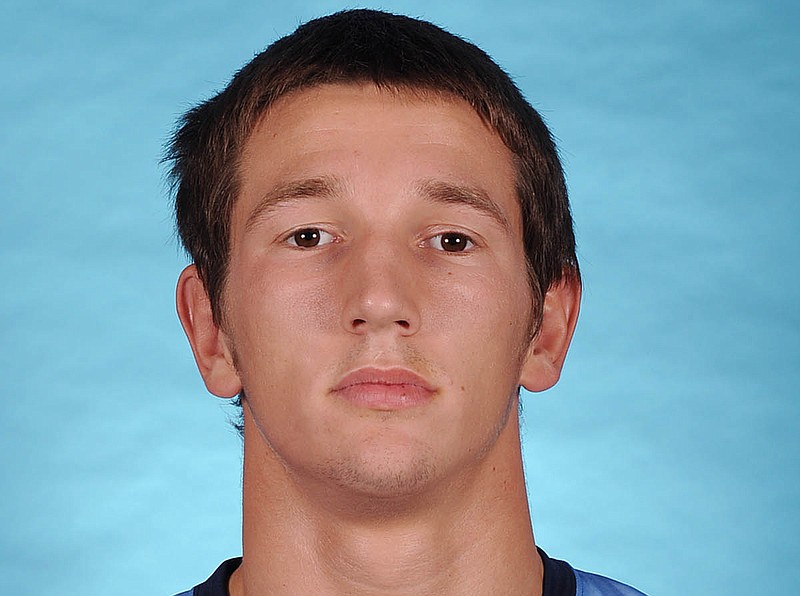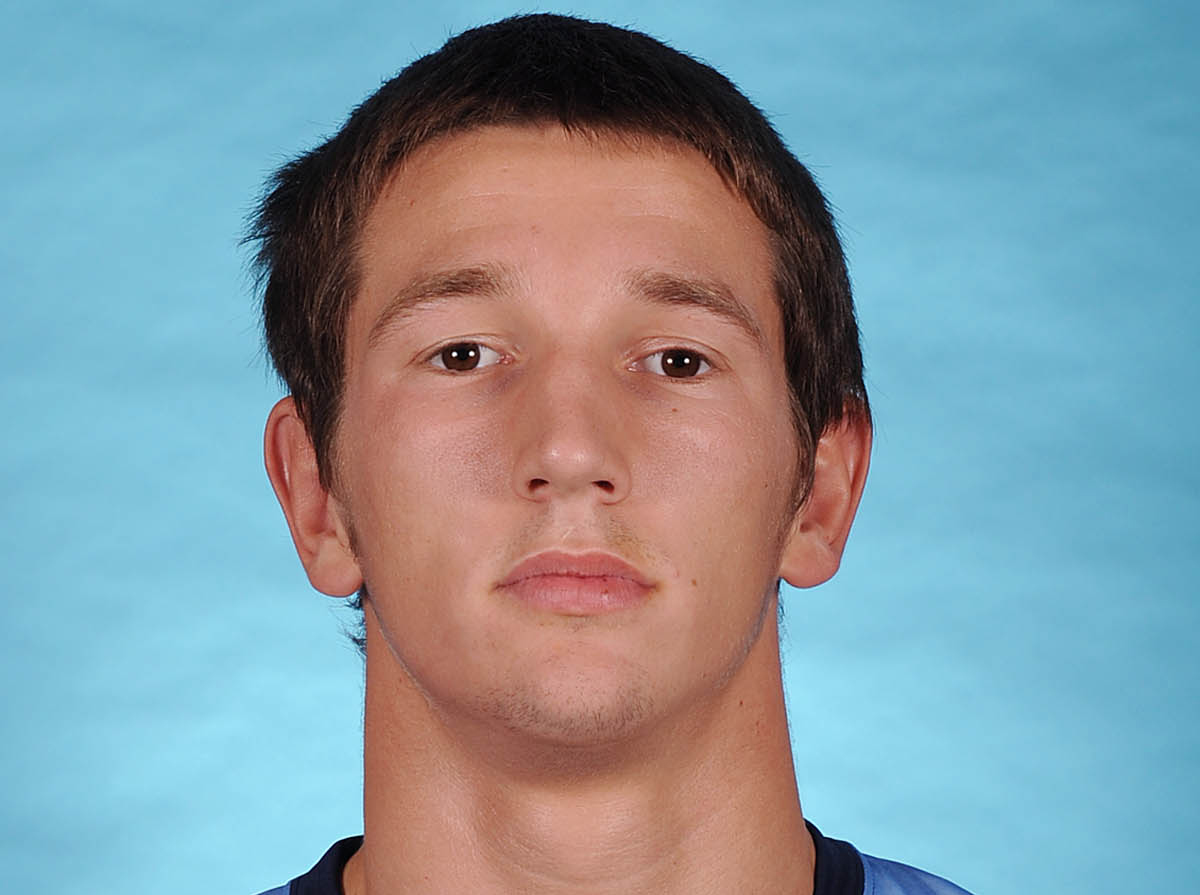Corey Mock can't prove that a UTC classmate consented to have sex with him at a late-night party last year. And the classmate also can't prove she told Mock "no."
The lack of evidence caused a judge in Davidson County Chancery Court to rule last week that Mock, a former wrestler for the University of Tennessee at Chattanooga, should not have been expelled from the school for violating its sexual misconduct policy.
Corey Mock timeline
* March 16, 2014: Corey Mock and Molly Morris meet at a party in the early morning. Mock says they had consensual sex. Morris says she was unconscious and was raped.* April 3, 2014: Morris files a complaint with the university.* June 24, 2014: Mock goes before University Judicial Officer Joanie Sompayrac for a hearing under the Uniform Rules and Procedures Act.* Aug. 4, 2014: Sompayrac rules that Mock is not responsible for sexual misconduct.* Aug. 25, 2014: Sompayrac reverses her decision after Morris and the university ask her to reconsider. Mock is officially expelled, but Sompayrac stays that decision pending an appeal.* Dec. 2, 2014: University Chancellor Steven Angle, ruling on Mock’s appeal, finds him responsible. He is expelled. Mock appeals Angle’s decision to Davidson County Chancery Court. A Davidson County Chancery Court judge grants Mock a temporary injunction, allowing him to take his fall semester finals.* Jan. 9, 2015: After a hearing in Nashville, the Chancery Court grants a protective order allowing Mock to continue his studies during the spring semester, citing “irreparable harm” caused by losing the semester should he win his appeal.* Jan. 26, 2015: UTC files an objection to the Jan. 9 order after finding out Mock will not graduate this spring.* Aug. 4, 2015: Judge rules that Mock should not have been expelled from UTC.
Chancellor Carol McCoy ruled that UTC did not provide adequate proof that Mock had sex with a student without her consent in March, therefore, he should not have been expelled.
The events leading up this decision were tumultuous.
Mock was originally found "not responsible" for sexual misconduct in August and, weeks later, this decision was reversed. Ultimately, UTC Chancellor Steven Angle decided in December to expel Mock, but a judge ruled in January that Mock could return to campus for his final semester.
"It has been a very long, difficult year, and I'm just relieved that the judicial system worked," Mock said in a text message Tuesday. "I'm happy to be getting my diploma and moving on."
Throughout the process, Mock's father, C.D. Mock, has been vocal on his personal blog about his son's innocence. He has criticized the affirmative consent policy - requiring consent before sexual activity, known as "yes means yes" - which many universities have adopted.
He claims that his son is the victim.
After the decision, he wrote about how happy he was to get this ruling but said the process has taken a toll on his son.
"This has been a long fight," C.D. Mock wrote in a blog post. "They took away his senior year as a student. They took away his senior year as an athlete. They took away any chance he ever had to fulfill his dream of being a wrestling coach as a career. His reputation will never be restored, this will follow him forever in 'Googleland.'"
Molly Morris, the student who accused Corey Mock of raping her, said she is very disappointed by the judge's decision. She granted permission for the Times Free Press to use her name.
Morris said in a phone interview that she believes she was given some sort of "date rape drug." She said she blacked out and does not remember a majority of the time she and Mock were having sex. She denies giving him any verbal or physical consent and said that she was clearly incapacitated and that he took advantage.
"I was doing so many nonconsensual things, being passed out and throwing up," Morris said over the phone on Tuesday. "Those should say 'no.'"
But there was no one else in the room that night. No one can testify if she consented, or if Mock took advantage. And because of the lack of proof, Mock was found not responsible under Tennessee law.
Morris said its unrealistic to expect a man to have a contract prepared or record her verbally agreeing to have sex, but that any respectable man knows what consent means and would not have slept with her while she was in that state. Morris said she is pleased that UTC has tightened it's student policy - by narrowing the definition of consent - but she thinks the school's policy still leans in favor of the accused rather than the accuser.
UTC Associate Vice Chancellor Chuck Cantrell said the school maintains an affirmative consent policy, and that it remains the responsibility to the initiating party to ensure that they receive consent before initiating any sexual activity.
"We take it very seriously, we want to create an environment where this is viewed as unacceptable," Cantrell said. "There seems to be some idea that the college culture is not strong enough in saying this is not unacceptable behavior."
Cantrell said UTC has 30 days from the initial ruling to determine if it is going to take any other legal action in the case and a decision has not been made.
Currently, UTC faces a Title IX complaint in this case, and an additional complaint was filed this spring by women who say the university mishandled other sexual harassment allegations. Title IX prohibits discrimination on the basis of sex in educational programs that receive federal financial assistance.
UTC's student policy defines consent as "an affirmative verbal response or acts that are unmistakable in their meaning," and says that the person initiating sexual activity is responsible for making sure the other person is capable of consenting.
Brett Sokolow, executive direct of the Association of Title IX Administrators, said in a written statement that the word "unmistakable" used in this policy is unwise, because it connotes absolute certainty, "and good luck with that in a sexual context," he wrote. When possible, he recommends universities use more appropriate terms such as "clear, knowing and voluntary" in its policies.
He also says that all available evidence, including witnesses and an assessment of credibility, should be utilized in cases like these, so that proof of consent isn't the only factor used to make these decisions.
Sokolow said, "like most campuses, UTC could benefit from further clarity and training on the difference between a drunken hook-up and a sex offense."
Contact staff writer Kendi Anderson at kendi.anderson@timesfreepress.com or 423-757-659.

